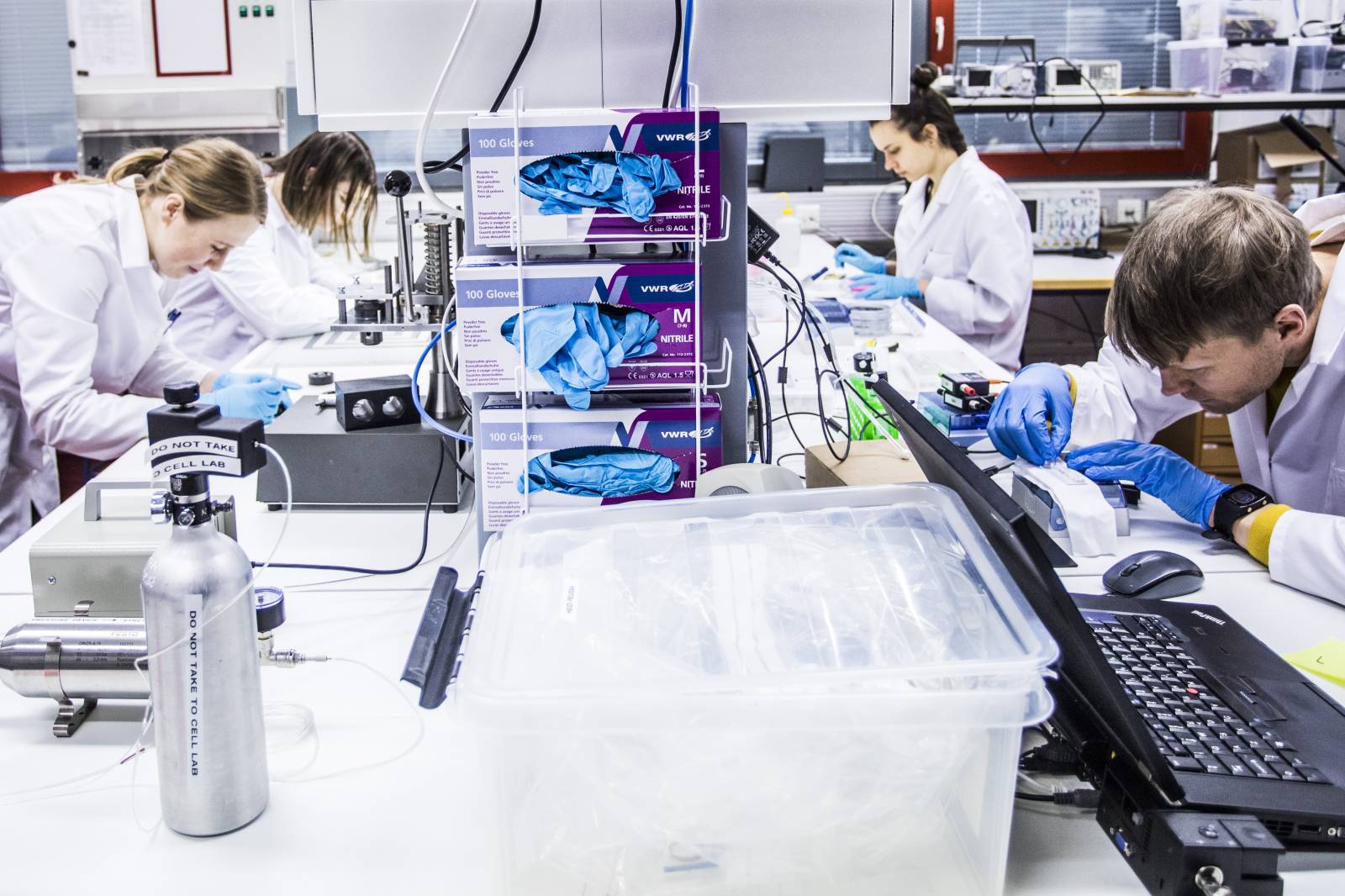Do you wonder what is it like to work at CoEBoC as a master’s student? Here four students describe their projects and daily work. The master’s thesis are important part of our research and most of the projects are joint projects of two or more CoEBoC’s research groups. If you are interested to perform your master’s thesis or bachelor’s thesis at CoEBoC, just contact our group leaders, coordinator or researchers!
Who are you ?
Elina Kalke, twenty-five-year-old master’s thesis student
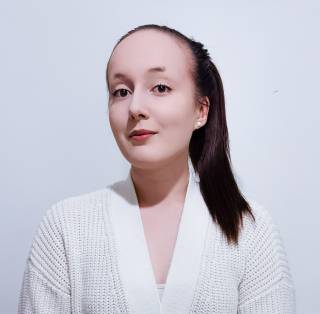
What have you studied and where?
I graduated with a bachelor’s degree from biotechnology in summer 2018 (UTA). Then, I decided to continue as a master’s student in cell technology (TUNI). I spent the autumn semester 2018-2019 in UHasselt (Belgium) to study bioelectronics and nanotechnology. When I returned to Tampere, I took optional courses from Biomedical Micro- and Nanodevices study program.
How did you end up working at CoEBoC and in which position?
Sampo Tuukkanen introduced me to Pasi Kallio and his Micro- and Nanosystems research group when I was seeking a master’s thesis position last spring. The topic that Pasi suggested in CoEBoC interested me the most.
What is your research topic at CoEBoC?
Developing body-on-a-chips for 3D cell cultures.
Describe your daily work:
I mostly build and test chips to optimize fabrication protocols and chip operation. Some processing methods I use for component fabrication and chip assembly include laser cutting, chemical coatings, PDMS molding, and oxygen plasma bonding. In addition, I measure contact angles to predict how different materials would influence the chip operation. This January, I had a chance to test the cytocompatibility of the chip materials. On the computer, I use Solidworks to design parts and draw illustrations. Lastly, reporting daily findings, literature search and writing are included in my work.
What have you learned at CoEBoC?
I’ve learned a lot about microfabrication and practical side of device development. My academic skills have improved with my supervisors’ and fellow researchers’ support and knowledge. Also, I’ve learned the value of collaborations in academia. Overall, I feel that the multidisciplinary setting, while sometimes challenging, has given me confidence to succeed in my career.
What are the positive and negative things about CoEBoC?
Pros:
+ Development of new, exciting, and promising technology
+ Wide variety of topics for many specializations
+ Possibility of collaborations with people from different backgrounds
Cons:
– Body-on-a-chip is a novel technology so a lot of optimization is included in research
– Finding common language between researchers from different fields
Have you participated CoEBoCs events/seminars, if you have what do you think about them?
I’ve participated in couple remote meetings and seminars. They have been a great opportunity to get to know the work of other research groups. Also, I’ve been able to share some of my results with others.
To whom would you recommend to apply research assistant /master thesis student positions at CoEBoC?
I would recommend CoEBoC to students who want to challenge themselves, solve problems and work in a multidisciplinary environment. My top tip for new research assistants/master’s students would be to keep your lab book on point, it’ll give you answers once something fails!
Who are you ?
My name is Tinja Hyypijev and I am a master’s thesis student.
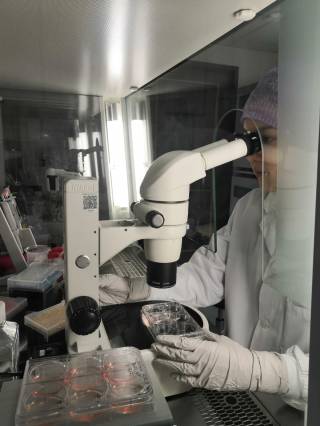
What have you studied and where?
I am a 5th year student of Biotechnology and Biomedical Engineering at Tampere university.
How did you ended up working at CoEBoC and in which position?
I had a summer job at the Heart group in the summer of 2019, and I got to see the research going on in the group at the time. I heard that there was a possible master’s thesis project on hepatocytes and decided to apply. Now I am doing my master’s thesis on hepatocytes in the Heart group.
What is your research topic at CoEBoC?
I am culturing hiPSC-derived hepatocyte-like cells with a biomaterial to test whether culturing the cells in 3D environment would enhance their maturation.
Describe your daily work:
When I’m culturing cells, I change the growth media daily and check the cells. On a sample day, I will take all the samples from the cultures. If I’m not in the cell lab, I’m testing and analyzing the samples with for example PCR or immunostaining. On an office day, I’ll prepare for a lab day, order lab products, search for articles, or write.
What have you learned at CoEBoC?
I have learned to be independent and manage my time. I get to decide and plan a lot by myself, which has taught me to trust myself and improve my skills. Since CoEBoC is multidisciplinary, I’ve gotten to experience collaborations between research groups and familiarize myself with different research topics other than just my groups.
What are the positive and negative things about CoEBoC?
I like how well the different groups seem to collaborate and share knowledge. Us master’s students have been welcomed to the groups very well and everyone is interested to know about our research as well.
To whom would you recommend to apply research assistant /master thesis student positions at CoEBoC?
I would recommend CoEBoC to a person who may be interested in both the cell side and the engineering side of research and would like to combine elements of both together in a project. If you want to improve and expand your skills in various methods and collaborate with other groups, CoEBoC is a great option for you.
Who are you?
My name is Mari Venäläinen and I’m a master’s thesis student at the Heart group.
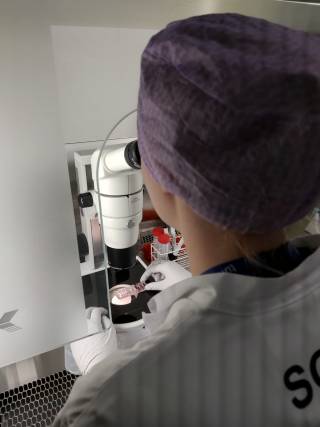
What have you studied and where?
I’m a 6th year student in the Biotechnology and Biomedical Engineering program at Tampere University.
How did you ended up working at CoEBoC and in which position?
Before starting my master’s thesis project, I was talking with a few different research groups about possible project topics. I thought that research related to microfluidic chips and 3D cell cultures sounded very interesting, so I ended up choosing to do my thesis at CoEBoC and the Heart group.
What is your research topic at CoEBoC?
I culture iPSC-derived hepatocyte-like cells on a chip to see if the 3D environment would improve their maturation and function.
Describe your daily work:
When I’m culturing cells, I change the medium, visually check the cells and take images of the chips daily. Occasionally I also do some short analyses like live/dead stainings to see how the cells are doing. Outside of cell culturing I do other labwork like qPCR or immunostainings. Whenever I’m not at lab, I go over protocols and do preparations for the next day, update my laboratory book, analyze results etc.
What have you learned at CoEBoC?
In addition to basic cell culturing and labwork, I have learned a lot about researching and planning for experiments.
What are the positive and negative things about CoEBoC?
Since so many different research groups are involved in CoEBoC, you get a chance to work with many people with different specialties and skills, so you have a great opportunity to learn and expand your knowledge. In addition, there are plenty of people you can ask for help if you run into problems during your research.
To whom would you recommend to apply research assistant/master thesis student positions at CoEBoC?
I would recommend CoEBoC to anyone interested in working with 3D cell cultures and microfluidic devices.
Who are you ?
Satu Jäntti, Master student of Biomedical technology with specialization in cell technology. Currently doing my master thesis and working as a master student in Neuro Group, Tampere University.
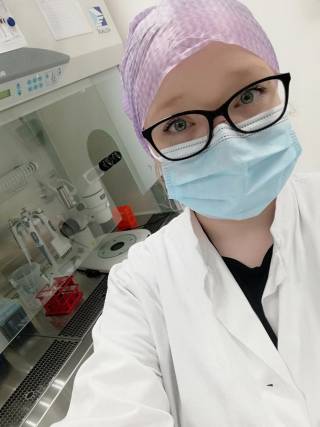
What have you studied and where?
Bachelor of science: Biotechnology at Tampere university
Master of science: Biomedical technology at Tampere university (Ongoing, soon graduating)
How did you ended up working at CoEBoC and in which position?
During my studies, I started to be very interested in in vitro studies and especially body-on-chip technology, and therefore wanted to do my master thesis related to them. In addition, I thought that stem cells, neurons and cardiac cells are very interesting cell types, so I ended up to looking for some master project related to them. Simply, I started to ask from different research groups by email if they have any project related to my interests and got my current project.
What is your research topic at CoEBoC?
I am culturing neuronal cells and cardiomyocytes in the compartmentalized microfluidic devices.
Describe your daily work:
One of the benefits in our field is that every day is different. Typically, my daily work includes planning the experiments, cell maintenance in lab (e.g. medium change, plating the cells etc.), doing some experiment (e.g. immunostaining, PCR, recording cardiac beating etc.), working on computer (e.g. editing images, reading articles etc.) and participating in seminars/meetings. Every of those might not happen in same day, but let’s say during the week.
What have you learned at CoEBoC?
First of all, the basic working skills in cell laboratory field, but also different techniques needed in my own project. I think that CoEBoC has offered me good basic working skills to continue in cell technology field. Everything has been taught me in-house, and I have never needed to be alone with my problems. Also, CoEBoc has offered good opportunity to work in international and multidisciplinary working environment.
What are the positive and negative things about CoEBoC?
CoEBoc has brought different groups together (multidisciplinary) and it has been very nice to see how everyone are doing things together. Everyone helps each other and never need to be alone with own problems: there is always someone who is helping you or at least the problems are tried to be solved together (co-operation between different groups). Also, it is positive that people are sharing their knowledge to each other without any hesitations. Also, CoEBoC warmly welcomes all the students to work with them even thought they might be working a short period. And most importantly, gives many different opportunities for students during their work, for example gives opportunity to participate in seminars where everyone shares their knowledges about different fields. Shortly, working environment is multidisciplinary, international and encourage.
Have you participated CoEBoCs events/seminars, if you have what do you think about them?
Yes in seminars. It is nice to participate in seminars, because there you can get lot of information about the different fields you might not know anything. Also, you can share your own projects there and have a good discussion and advices about it from others.
To whom would you recommend to apply research assistant /master thesis student positions at CoEBoC?
I recommend CoEBoC for those who wants to have opportunity to see different kind of chip-technologies and working with different cell types, especially with co-cultures. Or even people who are interested in chip technology itself to develop and manufacture chips. CoEBoC also offers a good opportunity to work in international and multidisciplinary environment if they are somebody’s interests.
I also encourage people who does not have any previous working experience in our field (as me) to apply, because everything will be taught in-house.

